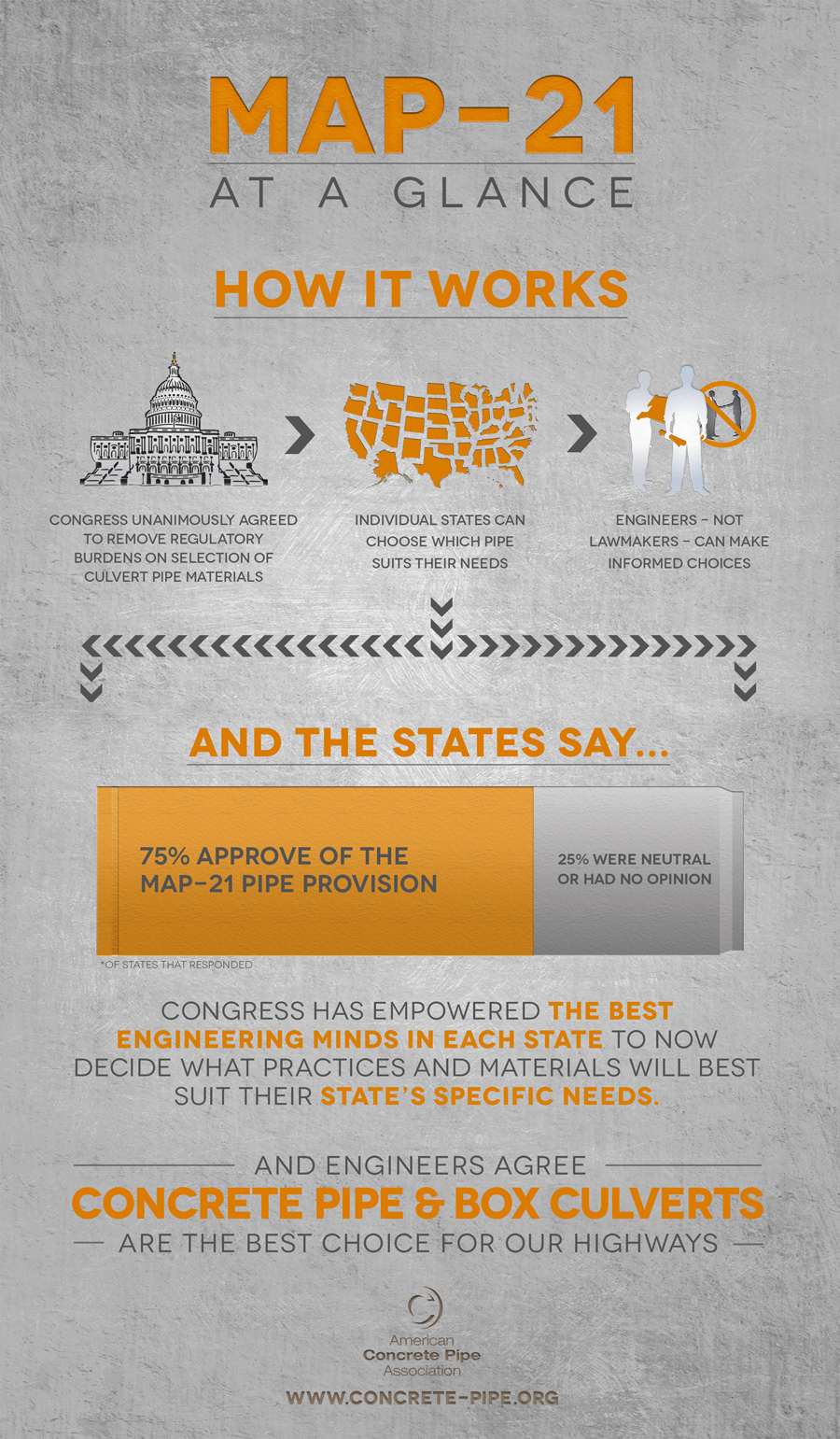Protecting Engineering Decisions from Political Interference
|
What Was the Problem with SAFETEA-LU?In the 2005 reauthorization bill (known as SAFETEA-LU), language was added at the very last minute, without any debate by the House or Senate, that was intended to encourage competition in the procurement of culvert pipe for federally-funded highways. Unfortunately, the unintended impact of that language was to force States to open their standards for culvert pipe – including, in some cases, products previously rejected by the State’s engineers – rather than allowing the States to continue to rely on sound engineering principles, safety considerations, and proven performance. What Did Congress Do To Fix the Problem?During its 2012 consideration of the highway reauthorization bill, MAP-21, Congress unanimously restored the ability of States to select their preferred culvert pipe based upon their State engineers’ recommendations and local prevailing conditions. Congress, and the Federal Highway Administration, recognized that States are most qualified to select safe and sustainable culvert pipe infrastructure, putting this engineering decision back into the hands of engineers. More specifically, Section 1525 of MAP-21, “State Autonomy for Culvert Pipe Selection,” directed the U.S. Secretary of Transportation to ensure that States have the autonomy to determine - without any federal interference - the type of culvert pipe material to be used for highway projects within their borders. Was Congress Tempted to Reconsider Its Solution?
|
|||
|
||||
|
||||



